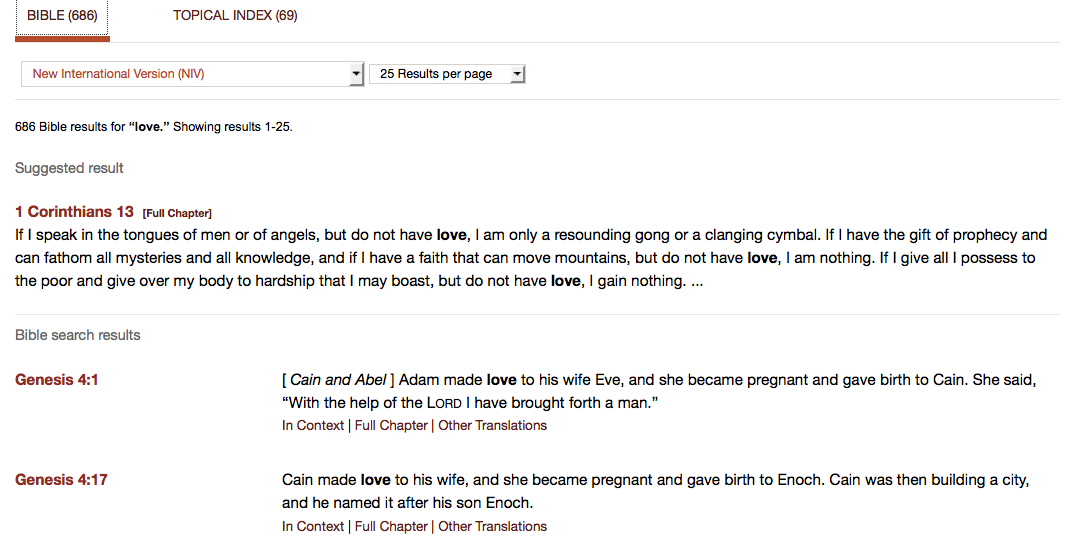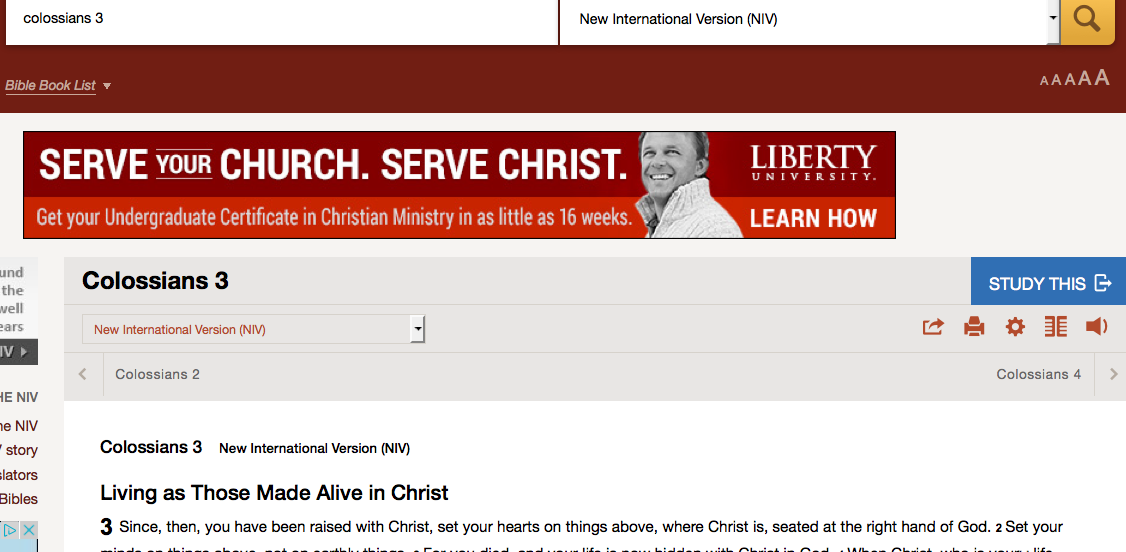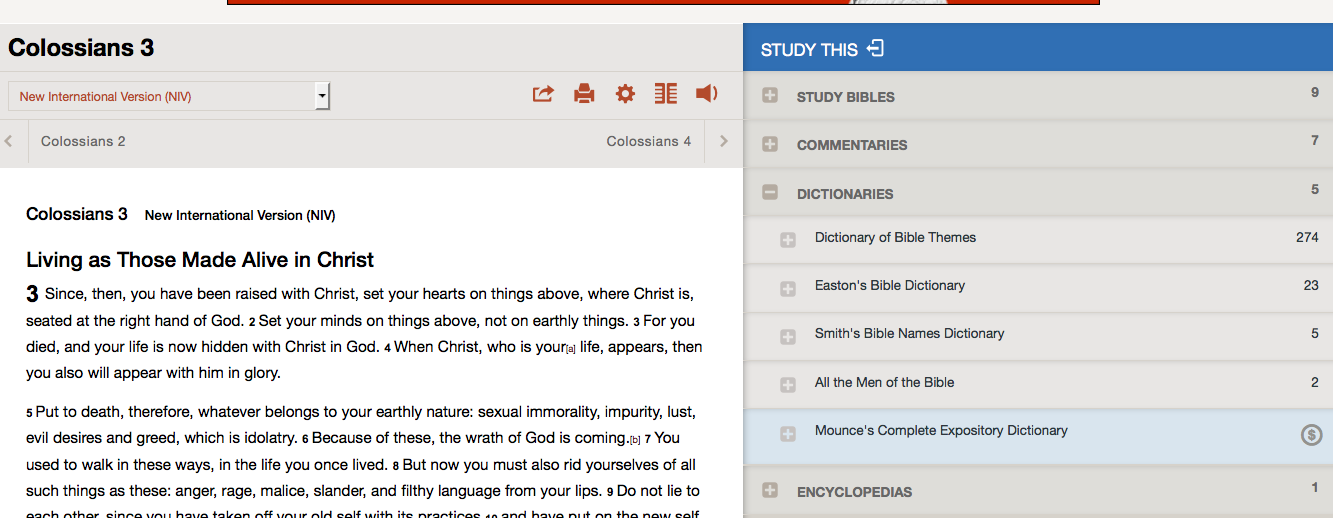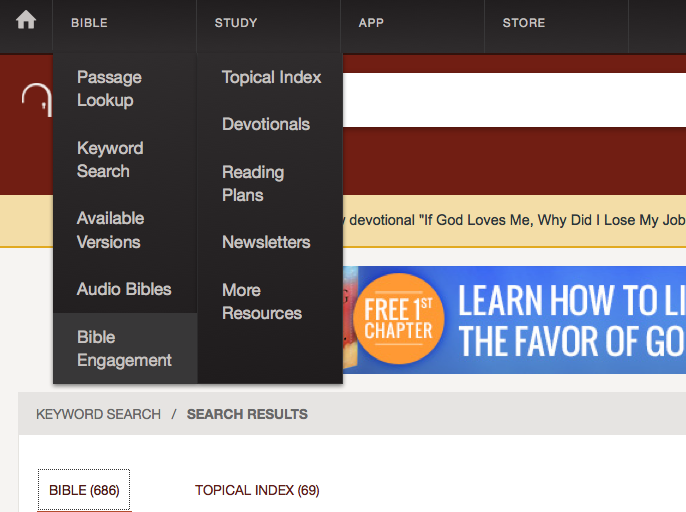 Have you ever sat down with your Bible and wished you could understand more of what it means? Do you sometimes wonder how the Bible can relate to your life today?
Have you ever sat down with your Bible and wished you could understand more of what it means? Do you sometimes wonder how the Bible can relate to your life today?
Even though I grew up in church, attended a Christian high school, a Christian university, and have read through the Bible cover to cover, I still wish I knew more of the culture and original meaning of the text, and sometimes I wonder what it means for me today, right now, in this situation.
I have great news for you! You CAN understand the Bible for yourself, and there are FREE resources available to help you. The more you read and study the Bible, the more you will realize how powerful God’s Word is for your everyday situations. This has turned my life upside down.
BibleGateway.com is my top tool for Bible study, and here are 3 ways I use it to help me study the Bible.
1. Topical Search
Step 1: Go to www.biblegateway.com and type a word into the big search box, and click the yellow magnifying box or just hit “enter.”

Step 2. This brings up a list, and you have 2 options. Either click “Bible” for all the verses in the Bible containing this word, or click “topical index” for a list of passages on this particular topic.

Try this: Either of these options (Bible list or Topical Index) are a great way to study the Bible for a particular topic. Try this search with a topic you may struggle with like “fear” or something you want to learn to be better at like “prayer.”
2. Bible study resources
Step 1. Enter a Bible passage into the search bar (or if you did a topical search, click on a passage from that list) you would like to study. Notice the blue box on the very right side of the page that says “Study This”?

Step 2. Click the blue box “Study This” and boom…

3. You have a list of resources to choose from: Study Bibles, Commentaries, Dictionaries, and Encyclopedias. One of my favorite tools from the list is commentaries, particularly Matthew Henry’s Commentary. According to Bible Gateway’s definition these commentaries “written by some of the brightest theologians in the church, provide a systematic series of explanations and interpretations of Scripture. They are intended to provide additional insight into the Bible, not to replace it, and can be valuable tools to assist both casual reading and serious study.”
Any of the resources with a $ next to them can be purchased, the others are free for your use.
3. Scripture Engagement
The Scripture Engagement page (found on the black menu under “Study”) is filled with incredible ways to engage with Scripture.

Can I just say, this page and list of resources is AMAZING! The page includes 12 different categories of articles and resources include praying, memorizing, singing, journaling, hand writing, visual art, storying, and speaking Scripture to name just a few! I’m considering taking each category and trying each one for a month to increase my own engagement and the ways I interact with Scripture. Would anyone like to join me?
What are your favorite Bible study tools? Or what do you wish you understood better about the Bible?
Tweetables:
[tweetherder]Want to study the #Bible? Author @amrhodes shows 3 easy ways using @biblegateway[/tweetherder]
[tweetherder]Learn how to understand the #Bible for yourself using tools from @biblegateway[/tweetherder]
I use BibleGateway.com just about every day. My favorite feature is being about to look at all occurrences of a word of phrase in the Bible. The search usually takes less than a second.
My second favorite feature is looking at a side-by-side comparison of the same passage in different versions (up to five).
(I didn’t know about the online commentaries – or I forget about them. Thanks for pointing out that feature.)